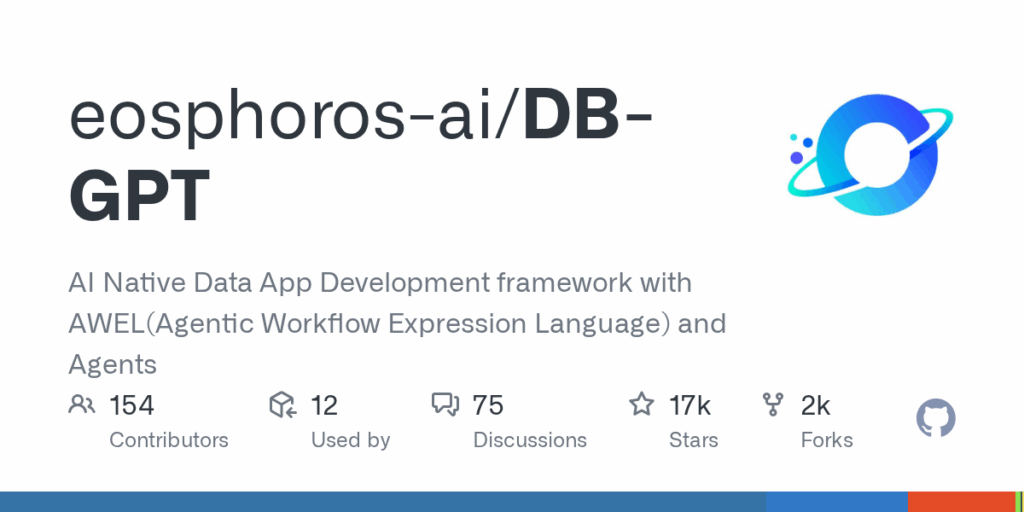DB GPT
Basic Information
DB-GPT is an open source AI-native data application development framework designed to help developers and enterprises build data-driven applications by combining large language models and databases. The project provides infrastructure for multi-model management, Text2SQL optimization, retrieval-augmented generation, generative business intelligence, automated fine-tuning, and a data-driven multi-agents framework. It includes AWEL, an Agentic Workflow Expression Language for orchestrating agent workflows, and supports connecting diverse data sources and a Data Factory for cleaning and preparing knowledge. The repository targets teams that want to create private-domain question-answering, business intelligence, and automated agents that operate over structured and unstructured enterprise data with reduced coding effort.








